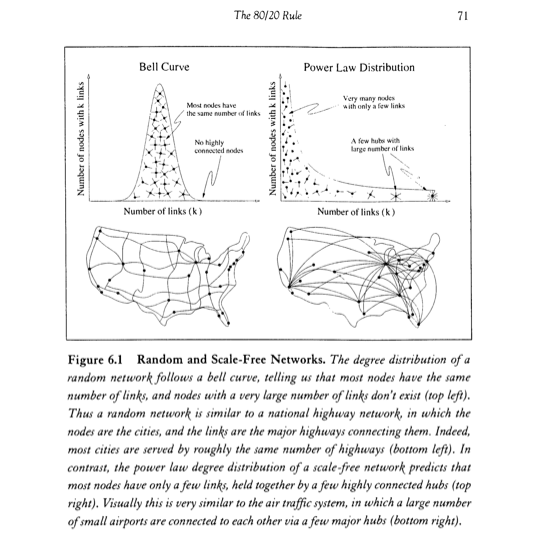One of the readings for this week, a chapter in a book by, Albert-László Barabasi, called Linked: How Everything Is Connected to Everything Else and What It Means for Business, Science, and Everyday Life, discusses the idea of the 80/20 rule.
It is basically the idea that 20% of things do 80% of the work, leaving the other 80% to do 20% of the work. It is a phenomena seen across the board, from 20% of pea pods producing 80% of the peas, to 20% of people earning 80% of the money, and is to do with what is known as a Power Law.
“Gutside academia Pareto is best known for one of bis empirical observations. An avid gardener, be noticed that 80 percent of bis peas were produced by only 20 percent of the peapods. A careful observer of economic inequalities, be saw that 80 percent of ltaly’s land was owned by only 20 percent of the population. More recently, Pareto’s Law or Principle, known also as tbe 80/20 rule, has been turned into
the Murphy’s Law of management: 80 percent of profits are produced by only 20 percent of tbe employees, 80 percent of customer service problems are created by only 20 percent of consumers, 80 percent of decisions are made during 20 percent of meeting time, and so on. It has morphed into a wide range of other truisms as well: For example, 80 percent of crime is committed by 20 percent of criminals.”
(This is the third time I have tired to upload this post, and the third time it has failed after I have rewritten it from scratch. It’s enough now. Just read the article and think what you want.)

